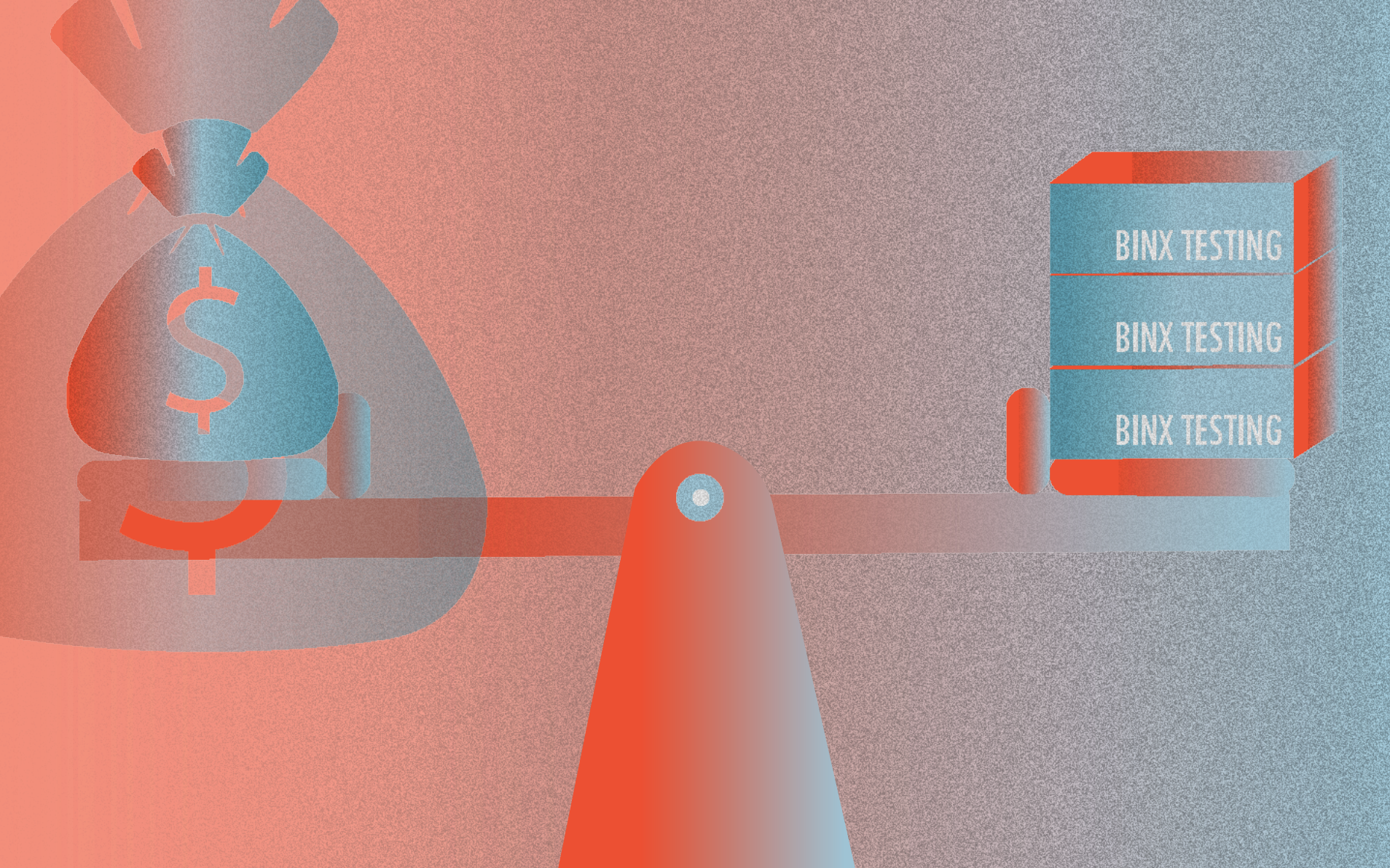Located one floor below ground level in the University Center is one indication of the ongoing COVID-19 pandemic: a university-run testing center. At the busiest times of day, lines of students, staff and faculty await a row of white tables armored with plexiglass and equipped with buckets of sanitizing wipes. While some wait in line for the next available table, others sit on benches, opening their white boxes on their laps. Following the instructions inside, they scan a QR code and activate the test on their phone, stick a long swab up each nostril, package it up and drop the box in a collection bin, having completed just one of the many COVID-19 PCR tests they will take this semester.
This simple procedure, repeated roughly 600 times a day, has a profound price: The New School is projected to spend roughly $11 million on its COVID-19 testing service by the end of the spring semester, according to Amy Malsin, communications and public affairs vice president.
“This amount could decrease as the cost of testing decreases and/or if we are able to reduce the amount of required testing for our community,” Malsin stated in an email to The New School Free Press. “We are working with several federal agencies, including FEMA [Federal Emergency Management Agency], to cover and reimburse these costs as much as possible.”
The university incurred over $3 million in testing costs between Aug. 16 and Oct. 31, Malsin said. 46,488 New School-provided tests were used during this period, making the average cost of a test $65.
New School COVID-19 policy requires vaccinated individuals to test every 14 days — though unreliable processing times have left many testing as frequently as every week — to maintain campus access. Those who remain unvaccinated and partially vaccinated must test every four days.
These policies, along with the university’s indoor mask requirements, air filtration systems and vaccine mandate, have led to low transmission. As of press time, The New School COVID-19 Data Dashboard reports a 0.19% positivity rate within the past 14 days, compared to 0.99% within the university zip code and 1.47% across the city.
“The infection rate in our community is extremely low and has decreased substantially over the past several weeks because of the impressive efforts by students, faculty, and staff to adhere to our policies and look after one another,” Malsin said.
New York University, meanwhile, does not require regular testing of fully vaccinated students or faculty. The university does provide random surveillance testing, though it is not always enforced. During the week of Nov. 8, the positivity rate was 0.76%.
Like other New York colleges such as New York University and New York Film Academy, The New School uses the Binx Health testing service. Community members have unlimited access to free binx tests, though they may also choose to obtain PCR tests from outside providers.
The first few months of the fall semester were dotted with periods of testing delays, leaving students and faculty locked out of campus as they awaited their results. These delays were due to high demand and harsh weather conditions, Malsin said, and the university has since extended the hours in which individuals can drop off tests at the University Center to 9 p.m. Monday-Thursday.
“This change was implemented early in the semester to help community members stay on top of their testing requirements,” Malsin stated.
Binx Health labs are also located roughly 800 miles away in Georgia, a factor that may have compounded testing delays during harsh weather conditions. Each week night, UPS Inc. picks up the day’s completed tests and transports them to Georgia overnight for processing.
As students and faculty plan upcoming holiday travel, The New School recommends that individuals test before leaving to ensure campus access upon their return. The university will also require everyone who travels out of state to take a PCR test on the day of their return, as well as one five days later, Renée White, provost and executive vice president for academic affairs, and Tokumbo Shobowale, executive vice president for business and operations, stated in an email to the community Nov. 5. Though testing upon return is required, the university does not have a system in place to record who leaves the state, effectively making it an honor system.
In addition, White and Shobowale shared that while these testing protocols are in place, The New School may loosen rules for the spring semester.
“If the infection rate remains low, we will adjust testing frequency, mask requirements, and campus access for vaccinated individuals,” White and Shobowale stated in the email.
The university plans to release further information regarding COVID-19 policies for the spring semester in December.







